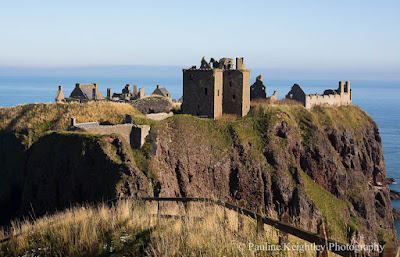Ireland’s population will reach 5.1 million, the highest it has been since the great famine of 1848 – when the British administration allowed food to be exported, when thousands in Ireland were starving. Many emigrated to America then, resulting in the influential American-Irish contingent today, including President Biden. Many also emigrated from the north over to Scotland, in search of a better life in the UK – more stability and better living standards. Twenty years ago Ireland decided for its future to invest in education.
Joining the EU has been transformational for all of Ireland – both north and south. Only 8% of Ireland’s trade is now with the UK, most of its trade is with the EU and the US. Today major global businesses have set up their European headquarters in Dublin - Google, Facebook, IBM, Apple, Pfizer. Dublin is also a main transfer airport. Ireland’s GDP is now at 5%. Ireland is now setting up a Wealth fund, similar to Norway, of 65 Billion, to protect for the future.
Our own personal experience defines us and shapes our attitudes to the policies and politics of today. its with a sense of dismay I read of Ireland’s success, while happy for the Republic of Ireland and our relatives still living over there, I feel sad and regretful for Scotland. I loved our visit to Dublin a few years back – our singing tour guide, the impressive writers museum, the historic Trinity university and book of Kells. Sadly my last memory of Belfast and County Down, is one of military checkpoints, hovering helicopters and heavy overcast clouds. I hope to travel over soon enough and find a more prosperous and settled north. I read that one of the main reasons for sectarian problems there is poverty.
Ireland was partitioned in 1921, to allow for the setting up of the independent Irish Republic. I have an old black and white photo of my grandfather who was captain of the Ards football team and won a few caps for the Irish football team, before partition (dated 1909 I believe) So its within living memory not so long ago. My parents left the north to settle in Edinburgh and my husband’s father also left the south too for Scotland.
We moved to America for a decade after the depressing debacle of the 1979 referendum for a Scottish parliament. Britain’s joining the EU brought much needed economic stability and prosperity, and we returned to Scotland. However the British establishment/ state felt threatened by new EU laws over transparency over tax havens. Nigel Farage was put on the BBC Question Time week after week to persuade the undecided on the merits of leaving the EU – take back control meant us all being richer, our NHS being well funded – instead we get reduced trade and less funding.
This year we had King Charles coronation and a concert celebrating the work of those “who serve” – the carers, the teachers, the nurses, and doctors, social workers etc. During the pandemic we all clapped for them but Britain cannot go on offering those who serve mere crumbs, when what these dedicated workers need is decent pay for their hours of hard work. Most voters want investment in our services (health, education, energy) and not in weapons of mass destruction.
Most of us have now travelled far more than our parents generation, and can see clearly there are other options available to us, than a failed British model. Many of us have known for decades that things are wrong in the UK – with declining living standards, the young unable to buy their own homes. While many ignore these serious problems, they should and could be fixed. As a teenager I spent two weeks in Imatra Finland, even then I wondered where the slums were – everything was very clean and the air fresh with the smell of those very tall pine trees. Most families enjoyed their weekend retreats. And in my time living in America I saw that each state had totally different identity, institutions, laws, trade, regulations, and most decisions are made at local level (such as taxes for schools). That’s not to say there are many problems in America – one being lax laws on pollution, another the way healthcare is delivered.
I was devastated with Brexit and Scotland’s enforced exit from Europe, when the majority of Scots support being inside the EU. Sadly the realities for Scotland are that we have a Scottish Parliament which is essentially the construct of Westminster and controlled and constrained by Westminster policies. QC Joanna cherry tells us Scotland does have the right of self determination under the UN charter. In Scotland historically the people sovereignty outweighs the sovereignty of Westminster – is this true?.
The UK government controls our economy and imposes its will, austerity policies and Brexit on Scotland. During the Brexit debates the profound issues of our island nations were not even considered by the English/ British people. I don’t know I understand why Scotland doesn’t have the right to self determination. But I know independence needs to be ‘taken’ with both arms out stretched – we can’t simply ask or request to be free!
Now the Tories are attempting to constraint devolution further, rather than allow Scotsself-determination.



.jpg)



